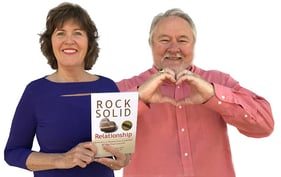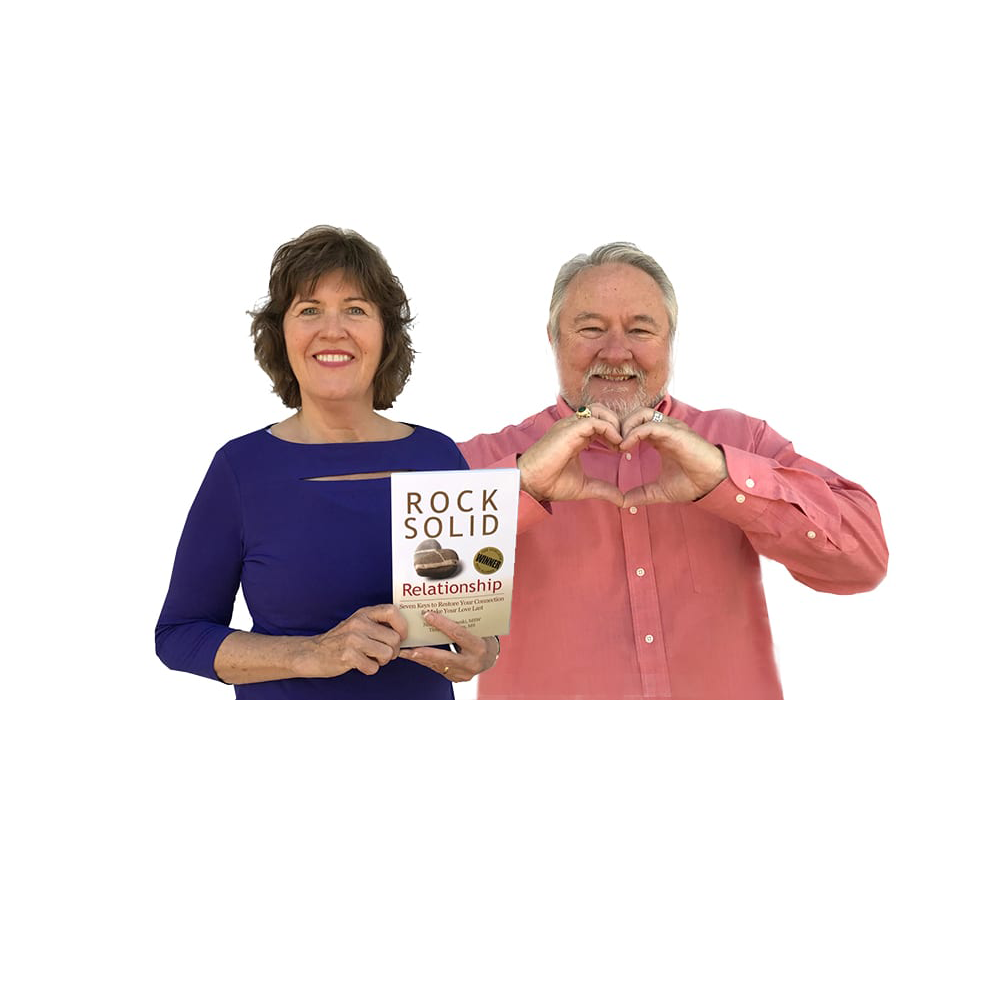
Are you an established couple with the average number of ups and downs which would like to return your relationship to their original state of love, romance, adventure, and connection?
Or, are you in a new relationship, and curious about how to make love last?
Either way, there are seven key items with exercises and tips you'll need for a lasting love, which will likely lead to an immediate improvement if practiced.
Try these out, and you will be on your way to building a healthy, happy, and strong love that lasts.
Lasting Love Relationship Tips:
Tip #1 - Return Your Relationship to Priority Status.
If you want the warm, juicy connection of love to last, you will have to make your partner your highest priority. Because we live in an age when an individual’s whims, wishes, and wants too often take precedence over his or her committed relationship, you may not even know what it truly means to put your relationship and your partner first. But when you were in the romantic stage of the relationship, you did this automatically. Now, you will need to set an intention. To return your partner to priority status will require a focused, conscious effort on your part.
How do you make this “conscious” effort? It’s a two-step process:
-
Step 1 - set the intention of raising your relationship level of importance to the top.
- Step 2 - initiate loving behaviors daily. To remain greatly in love, you need to act in ways that show your love consciously.
Exercise: Make a List.
With your partner, make a list of the many ways, big and small, that make you each feel like THE priority. List current habits and rituals and past ones as well.
The behaviors that make you both feel important may include such things as:
-
Going on regular dates
-
Weekly sex
-
Going to bed at the same time
-
Asking about each other’s day
-
Showing affection
-
Always sharing confidences with your partner first
What are your favorite habits and rituals?
Make a list of the activities that prevent you from making your relationship the priority. Some may be normal parts of life, such as:
-
Making a living
-
Raising children
-
Watching TV
-
Answering emails
-
Exercising
-
Playing golf
Which behaviors are you each willing to modify or stop to put more energy back into your relationship?

Tip #2 - Love is a Verb, so Focus on the Action.
Happy couples consistently find ways to express their love throughout the weeks, months, and years, making the journey of their lives rich and rewarding. The outcome is that their relationship is a rock-solid bond between them that enlivens their life.
It is as though they have a Relationship Savings Account, and all of the thoughtful and loving actions are deposited for future strength and goodwill. Seven keys to lasting love and cultivating lasting love is accomplished by making love a verb. “Love is a decision followed by a million loving actions.”
To keep your relationship healthy and strong, you have to become intentional in how you treat your partner. You have to remember that love is a verb and discipline yourself to practice actions of love.
What actions of love does your partner prefer? Acting with love comes in three sizes: small, medium, and large.
-
Small actions are the daily loving behaviors such as the welcome home kiss, a sweet text in the middle of the day, bringing your partner a cup of coffee, and an appreciation spoken earnestly.
-
Medium actions take more planning and effort. These would include date nights, a surprise gift, making love, buying tickets to a concert, or setting aside time for fun.
- Large actions require advanced planning, lots of discussions, and perhaps saving money.
Examples:
-
Weekends spent away
-
Overnight hike
-
Vacations without the kids
-
Major adventures
-
Large-size undertakings often involve checking something off your bucket list
Exercise: Write a Menu.
Write a menu of the small, medium, and large actions that express love. Think about things you once did for each other, as well as the ones you do now. Make a regular (daily, weekly, and monthly) commitment to expressing these caring behaviors.
Tip #3 - Negativity Kills Love!
The number one requirement for creating a love that lasts is an atmosphere of safety. And nothing prevents your partner from feeling safe more than negative treatment. What is negativity in a relationship? According to Dr. Harville Hendrix, author of Getting the Love You Want, negativity is any thought, behavior, or word that tells your partner, “You are not okay when you think the way you think or act the way you act.”
Perhaps the most compelling impact of negativity on your relationship is that it can leave your relationship susceptible to both affairs and divorce. With a history of negativity in a relationship, both parties begin to feel bad about themselves and despair about the chances of ever being happy with the other.
To create an atmosphere of positivity that nurtures your partner’s self-esteem and makes him or her feel safe, seen, and loved requires taking the time to “catch your partner doing things right.” Sometimes couples feel reluctant to show appreciation for the things their partner “should do.” We ask you, “Why shouldn’t we all be thanked for our contributions, whether they are necessary?”
Exercise: Replacing Negativity.
For the next two weeks, each time you think negatively toward your partner, replace the thoughts with three reasons you appreciate your partner.
If you say something negative, first apologize and then tell your partner something you appreciate.
Get in the regular habit of “changing your mind about your partner.” Catch your partner doing things right and take the time to stop and let them know you appreciate their efforts.

Tip #4 - Good Communication is Golden.
Learning to have a safe conversation can do wonders for making love last. If your communication is non-existent or troubled, you miss out on the opportunity to feel close and like a real team. With the right tools, you can end the conflict and increase connection.
Happy couples learn to resolve conflict respectfully and quickly by using some of the following:
-
When triggered and beginning to become reactive, take a deep breath. When you are calm enough, state the frustration using an “I” message.
-
When you_______, I feel_______, and what I need from you is_____.
-
If still reactive and falling into a bad communication habit, STOP!!! Take "recovery time" by going for a walk, folding the laundry, or engaging in other activities that will help you calm down.
-
If your reactivity is too much to get yourself calmed down within an hour, tell your partner when you think you will be available to talk in a calm, courteous way. Do not leave your partner, "hanging."
-
All issues are unmet needs. Try to identify your real need, versus just your upset feelings. Then talk about your real need, such as being respected, or included, or heard. Those are needs.
-
Imagine win-win solutions, and talk it through until you arrive at a place where you both get your needs met.
Exercise: Write about your poor communication habits.
-
What triggers your reactivity?
-
At your worst in an argument, how do you behave?
-
What are you willing to do differently to be a better communicator?
-
Practice using one "I Message" about a very minor frustration.
-
When you_______, I feel_______, and what I need from you is_____.
Tip #5 - Build A “Firewall” Around Your Relationship.
Many couples have difficulty understanding how a lack of boundaries can cause their relationship damage. An intimate relationship is strong and vulnerable at the same time. Think about computers. They are powerful, brilliant machines, but they are also vulnerable to viral “invasions.”
Because we value protecting our personal information, we spend money on subscriptions to firewalls. Well, your marriage is a significant investment, too! It's filled with private experiences. Like a computer, your marriage is vulnerable to invasion. To keep it rock-solid, you need a good firewall.
For your marriage to be secure, two boundaries must be in place:
-
Confidentiality regarding the private matters of your marriage.
-
Exclusive physical and emotional intimacy.
In this time of “over-sharing,” people vent relationship confidences to friends and family. You may wonder what’s wrong with telling people your marriage troubles. When you blame, judge, or criticize your spouse with others, you are allowing the listener into the sanctity of your marriage—and you are imposing your viewpoint on private matters.
This biased venting causes your confidants to develop a negative opinion of your spouse…and of you. There you are blaming another for your issues, and that will not inspire respect.
Exercise: Rate your Confidentiality.
On a scale of 1 to 10, rate how well you practice good couple’s confidentiality.
-
Rating of 1 = No confidentiality (I believe in being an open book about my partner’s confidence).
-
Rating of 10 = I keep all confidences private between my partner and myself.
-
Your Total Score__________.
Ask yourself:
-
With whom do I disclose a confidence about my relationship or my partner?
-
What do I imagine the impact of breaking confidences with my partner could be?
-
What might the impact be on our relationship or protecting my partner’s confidence?
-
What new behavior am I willing to do to support strengthening our firewall?
Tip #6 - Enjoy A Satisfying Sex Life.
The bottom line is this. A good sex life is a hallmark of a rock-solid relationship. Sexual connection serves a vital purpose and a reasonable expectation within a committed relationship.
Rather than our only need for sex being reproduction, humans need sex to reinforce attachment between partners. In committing to your partner, a reasonable expectation of this expectation is to do your part to keep your sex life alive.
From a scientific perspective, sex is one of the main ways you and your partner experience heightened blood levels of oxytocin, an important chemical with multiple benefits in sexual and emotional health.
Oxytocin is called the "cuddle hormone" and is nature’s way of keeping us feeling close. Having a great sex life over the course of a lifelong relationship takes intentionality and dedication. It is worth the effort because sex is the glue that binds you two close together. Sex produces hormones of patience and tolerance.
Sex makes you laugh, touches you tenderly, and makes you cry in relief and love - all of which are emotions that bring connection. Make the time for sex in your schedule, and to enjoy the real living partner beside you. The physical pleasuring of one another makes your relationship even more of a treasure.
Remember, sex is the one thing that really sets your relationship apart from all the others. It is mysterious, special, and even sacred. Don’t miss out on all sexual intimacy has to offer.
Exercise: The 60-Second Hug.
-
Increase your feeling of closeness every day by giving and receiving a 60-Second Hug.
-
No patting or talking. Just hold your partner.
-
Follow with an acknowledgment or appreciation.
-
Do this for seven days and share your experience with your partner.
-
Continue the hug as a daily practice.
Tip #7 - When You Have an Argument, Repair it Quickly!
All solid relationships require making repairs, both small and large. When you make an effort to show your love in daily ways, make regular deposits into your relationship savings account. You are saving up love for days when stresses mount.
Even couples who have highly adventurous and romantic relationships still run into disagreements that escalate into conflicts. You can’t expect to live with another person and always get along perfectly. Sometimes the escalation is from being too tired, too hungry, or too overwhelmed. Who doesn’t have these moments?
Happiness doesn’t lie in having a conflict-free relationship. Happiness lies in the willingness to repair those negative conflicts.
Small repairs are actions or statements that de-escalate tension and are needed regularly. Action Steps to Take:
-
Open your arms and invite your spouse to be held.
-
Say, “Would you listen to me now and try and understand. I will then listen to you.”
-
Quietly lean closer to your partner if he/she is upset.
-
Say, “May we take a break and then talk again? I will listen first.”
-
Reach out your hand and touch your partner’s hand.
-
Say "I would like to tell you what makes sense to me about what you are saying."
Exercise: What does your partner do? What can both of you agree to do?
-
Think and reflect on what you do to repair misunderstandings or arguments in your relationship.
-
Have a conversation with your partner and share the above information.
-
Ask your partner for his or her insights about the repair. Work together on a strategy for those moments when arguments occur.
If you're struggling in your marriage or relationship, we are here to help. Check out our Imago Relationship workshops and therapy. We also have Online Couples Therapy and Online Couples Workshops right now!
Discover more about Imago with our Imago Professional Membership, Imago Professional Facilitators, Imago Professional Training, and Imago Educational Webinars.Connect. Transform. Thrive.

This blog post was written by Norene Gonsiewski, LCSW, and Tim Higdon MS, LPC.
Norene and Tim have co-authored a book, Rock Solid Relationship: Seven Keys to Restore Your Connection and Make Your Love Last. Check out their website too!


